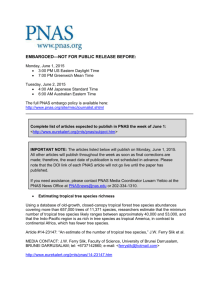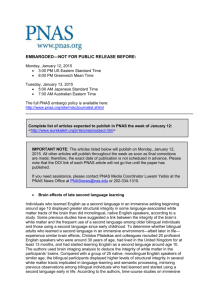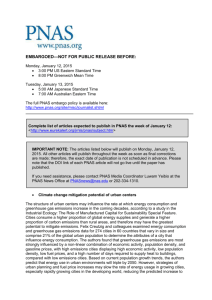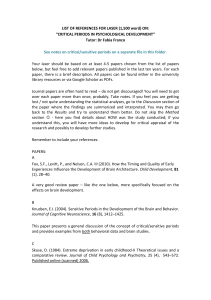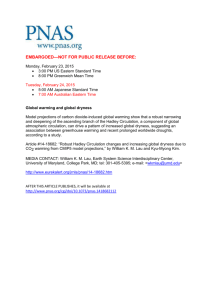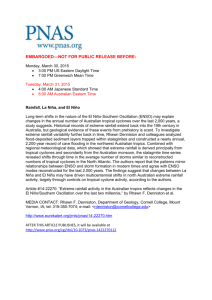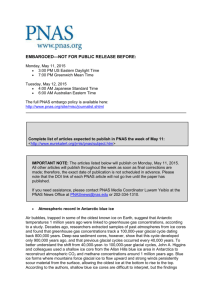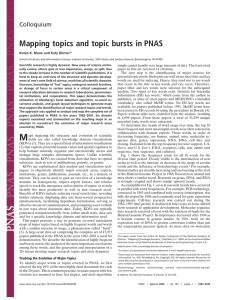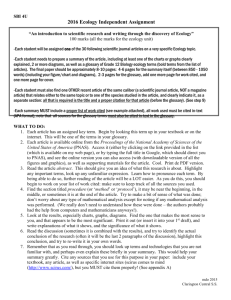Media Release
advertisement
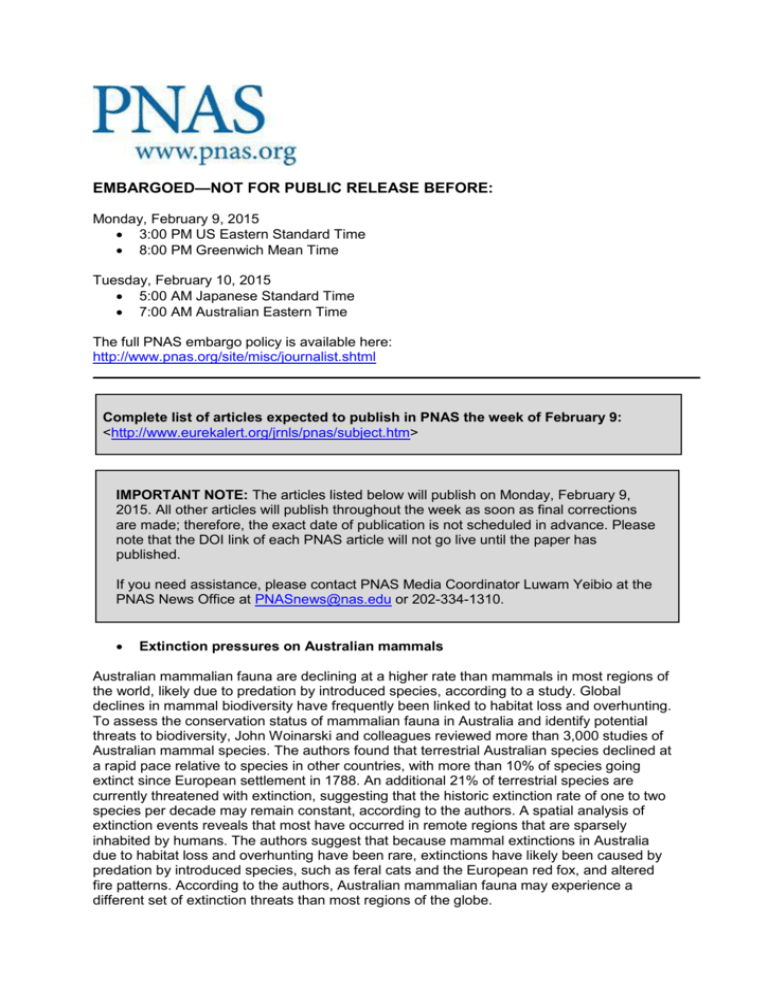
EMBARGOED—NOT FOR PUBLIC RELEASE BEFORE: Monday, February 9, 2015 3:00 PM US Eastern Standard Time 8:00 PM Greenwich Mean Time Tuesday, February 10, 2015 5:00 AM Japanese Standard Time 7:00 AM Australian Eastern Time The full PNAS embargo policy is available here: http://www.pnas.org/site/misc/journalist.shtml Complete list of articles expected to publish in PNAS the week of February 9: <http://www.eurekalert.org/jrnls/pnas/subject.htm> IMPORTANT NOTE: The articles listed below will publish on Monday, February 9, 2015. All other articles will publish throughout the week as soon as final corrections are made; therefore, the exact date of publication is not scheduled in advance. Please note that the DOI link of each PNAS article will not go live until the paper has published. If you need assistance, please contact PNAS Media Coordinator Luwam Yeibio at the PNAS News Office at PNASnews@nas.edu or 202-334-1310. Extinction pressures on Australian mammals Australian mammalian fauna are declining at a higher rate than mammals in most regions of the world, likely due to predation by introduced species, according to a study. Global declines in mammal biodiversity have frequently been linked to habitat loss and overhunting. To assess the conservation status of mammalian fauna in Australia and identify potential threats to biodiversity, John Woinarski and colleagues reviewed more than 3,000 studies of Australian mammal species. The authors found that terrestrial Australian species declined at a rapid pace relative to species in other countries, with more than 10% of species going extinct since European settlement in 1788. An additional 21% of terrestrial species are currently threatened with extinction, suggesting that the historic extinction rate of one to two species per decade may remain constant, according to the authors. A spatial analysis of extinction events reveals that most have occurred in remote regions that are sparsely inhabited by humans. The authors suggest that because mammal extinctions in Australia due to habitat loss and overhunting have been rare, extinctions have likely been caused by predation by introduced species, such as feral cats and the European red fox, and altered fire patterns. According to the authors, Australian mammalian fauna may experience a different set of extinction threats than most regions of the globe. Article #14-17301: “Ongoing unraveling of a continental fauna: Decline and extinction of Australian mammals since European settlement,” by John C. Z. Woinarski, Andrew A. Burbidge, and Peter L. Harrison. MEDIA CONTACT: John Woinarski, Charles Darwin University, Darwin, Northern Territory, AUSTRALIA; tel: +61418771000; e-mail: <john.woinarski@cdu.edu.au> Images accompanying this article are available. http://www.eurekalert.org/jrnls/pnas/14-17301.htm

